- Home
- Charles de Lint
The Very Best of Charles De Lint Page 7
The Very Best of Charles De Lint Read online
Page 7
Something different about one of them caught her eye as it fell and she plucked it up from the ground. It was a small brown ovoid shape, an incongruity in the crowded midst of all the capped acorns. She held it up to her eye.
Even in the moonlight she could see what it was.
A hazelnut.
Salmon wisdom locked in a seed.
Had she regained memories, memories returned to her now from a place where the Summer Stars always shone, or had she just had a dream in the Mondream Wood where as a child she’d thought that the trees dreamed they were people?
Smiling, she pocketed the nut, then slowly made her way back into the house.
The Stone Drum
There is no question that there
is an unseen world. The problem
is how far is it from midtown and
how late is it open?
—attributed to Woody Allen
It was Jilly Coppercorn who found the stone drum, late one afternoon. She brought it around to Professor Dapple’s rambling Tudor-styled house in the old quarter of Lower Crowsea that same evening, wrapped up in folds of brown paper and tied with twine. She rapped sharply on the Professor’s door with the little brass lion’s head knocker that always seemed to stare too intently at her, then stepped back as Olaf Goonasekara, Dapple’s odd little housekeeper, flung the door open and glowered out at where she stood on the rickety porch.
“You,” he grumbled.
“Me,” she agreed, amicably. “Is Bramley in?”
“I’ll see,” he replied and shut the door.
Jilly sighed and sat down on one of the two worn rattan chairs that stood to the left of the door, her package bundled on her knee. A black and orange cat regarded her incuriously from the seat of the other chair, then turned to watch the progress of a woman walking her dachshund down the street.
Professor Dapple still taught a few classes at Butler U., but he wasn’t nearly as involved with the curriculum as he had been when Jilly attended the university. There’d been some kind of a scandal—something about a Bishop, some old coins and the daughter of a Tarot reader—but Jilly had never quite got the story straight. The Professor was a jolly fellow—wizened like an old apple, but more active than many who were only half his apparent sixty years of age. He could talk and joke all night, incessantly polishing his wire-rimmed spectacles for which he didn’t even have a prescription.
What he was doing with someone like Olaf Goonasekara as a housekeeper Jilly didn’t know. It was true that Goon looked comical enough, what with his protruding stomach and puffed cheeks, the halo of unruly hair and his thin little arms and legs, reminding her of nothing so much as a pumpkin with twig limbs, or a monkey. His usual striped trousers, organ grinder’s jacket and the little green and yellow cap he liked to wear, didn’t help. Nor did the fact that he was barely four feet tall and that the Professor claimed he was a goblin and just called him Goon.
It didn’t seem to allow Goon much dignity and Jilly would have understood his grumpiness, if she didn’t know that he himself insisted on being called Goon and his wardrobe was entirely of his own choosing. Bramley hated Goon’s sense of fashion—or rather, his lack thereof.
The door was flung open again and Jilly stood up to find Goon glowering at her once more.
“He’s in,” he said.
Jilly smiled. As if he’d actually had to go in and check.
They both stood there, Jilly on the porch and he in the doorway, until Jilly finally asked, “Can he see me?”
Giving an exaggerated sigh, Goon stepped aside to let her in.
“I suppose you’ll want something to drink?” he asked as he followed her to the door of the Professor’s study.
“Tea would be lovely.”
“Hrumph.”
Jilly watched him stalk off, then tapped a knuckle on the study’s door and stepped into the room. Bramley lifted his gaze from a desk littered with tottering stacks of books and papers and grinned at her from between a gap in the towers of paper.
“I’ve been doing some research since you called,” he said. He poked a finger at a book that Jilly couldn’t see, then began to clean his glasses. “Fascinating stuff.”
“And hello to you, too,” Jilly said.
“Yes, of course. Did you know that the Kickaha had legends of a little people long before the Europeans ever settled this area?”
Jilly could never quite get used to Bramley’s habit of starting conversations in the middle. She removed some magazines from a club chair and perched on the edge of its seat, her package clutched to her chest.
“What’s that got to do with anything?” she asked.
Bramley looked surprised. “Why everything. We are still looking into the origins of this artifact of yours, aren’t we?”
Jilly nodded. From her new position of vantage she could make out the book he’d been reading. Underhill and Deeper Still, a short story collection by Christy Riddell. Riddell made a living of retelling the odd stories that lie just under the skin of any large city. This particular one was a collection of urban legends of Old City and other subterranean fancies—not exactly the factual reference source she’d been hoping for.
Old City was real enough; that was where she’d found the drum this afternoon. But as for the rest of it—albino crocodile subway conductors, schools of dog-sized intelligent goldfish in the sewers, mutant rat debating societies and the like…
Old City was the original heart of Newford. It lay deep underneath the subway tunnels—dropped there in the late eighteen hundreds during the Great Quake. The present city, including its sewers and underground transportation tunnels, had been built above the ruins of the old one. There’d been talk in the early seventies of renovating the ruins as a tourist attraction—as had been done in Seattle—but Old City lay too far underground for easy access. After numerous studies on the project, the city council had decided that it simply wouldn’t be cost efficient.
With that decision Old City had rapidly gone from a potential tourist attraction to a home for skells—winos, bagladies and the other homeless. Not to mention, if one was to believe Bramley and Riddell, bands of ill-mannered goblin-like creatures that Riddell called skookin—a word he’d stolen from old Scots, which meant, variously, ugly, furtive and sullen.
Which, Jilly realized once when she thought about it, made it entirely appropriate that Bramley should claim Goon was related to them.
“You’re not going to tell me it’s a skookin artifact are you?” she asked Bramley now.
“Too soon to say,” he replied. He nodded at her parcel. “Can I see it?”
Jilly got up and brought it over to the desk where Bramley made a great show of cutting the twine and unwrapping the paper. Jilly couldn’t decide if he was pretending it was the unveiling of a new piece at the museum or his birthday. But then the drum was sitting on the desk, the mica and quartz veins in its stone catching the light from Bramley’s desk lamp in a magical glitter, and she was swallowed up in the wonder of it again.
It was tube-shaped, standing about a foot high, with a seven-inch diameter at the top and five inches at the bottom. The top was smooth as the skin head of a drum. On the sides were what appeared to be the remnants of a bewildering flurry of designs. But what was most marvelous about it was that the stone was hollow. It weighed about the same as a fat hardcover book.
“Listen,” Jilly said and gave the top of the drum a rap-a-tap-tap.
The stone responded with a quiet rhythm that resonated eerily in the study. Unfortunately, Goon chose that moment to arrive in the doorway with a tray laden with tea mugs, teapot and a platter of his homemade biscuits. At the sound of the drum, the tray fell from his hands. It hit the floor with a crash, spraying tea, milk, sugar, biscuits and bits of crockery every which way.
Jilly turned, her heartbeat double-timing in her chest, just in time to see an indescribable look cross over Goon’s features. It might have been surprise, it might have been laughter, but it was gone too q
uickly for her to properly note. He merely stood in the doorway now, his usual glowering look on his face, and all Jilly was left with was a feeling of unaccountable guilt.
“I didn’t mean…” Jilly began, but her voice trailed off.
“Bit of a mess,” Bramley said.
“I’ll get right to it,” Goon said.
His small dark eyes centered their gaze on Jilly for too long a moment, then he turned away to fetch a broom and dustpan. When Jilly turned back to the desk, she found Bramley rubbing his hands together, face pressed close to the stone drum. He looked up at her over his glasses, grinning.
“Did you see?” he said. “Goon recognized it for what it is, straight off. It has to be a skookin artifact. Didn’t like you meddling around with it either.”
That was hardly the conclusion that Jilly would have come to on her own. It was the sudden and unexpected sound that had more than likely startled Goon—as it might have startled anyone who wasn’t expecting it. That was the reasonable explanation, but she knew well enough that reasonable didn’t necessarily always mean right. When she thought of that look that had passed over Goon’s features, like a trough of surprise or mocking humour between two cresting glowers, she didn’t know what to think, so she let herself get taken away by the Professor’s enthusiasm, because…well, just what if…?
Judging by all of Christy Riddell’s accounts, there wasn’t a better candidate for skookin-dom than Bramley’s housekeeper.
“What does it mean?” she asked.
Bramley shrugged and began to polish his glasses. Jilly was about to nudge him into making at least the pretense of a theory, but then she realized that the Professor had simply fallen silent because Goon was back to clean up the mess. She waited until Goon had made his retreat with the promise of putting on another pot of tea, before she leaned over Bramley’s desk.
“Well?” she asked.
“Found it in Old City, did you?” he replied.
Jilly nodded.
“You know what they say about skookin treasure…?”
They meaning he and Riddell, Jilly thought, but she obliging tried to remember that particular story from Underhill and Deeper Still. She had it after a moment. It was the one called “The Man With the Monkey” and had something to do with a stolen apple that was withered and moldy in Old City but became solid gold when it was brought above ground. At the end of the story, the man who’d stolen it from the skookin was found in little pieces scattered all over Fitzhenry Park….
Jilly shivered.
“Now I remember why I don’t always like to read Christy’s stuff,” she said. “He can be so sweet on one page, and then on the next he’s taking you on a tour through an abattoir.”
“Just like life,” Bramley said.
“Wonderful. So what are you saying?”
“They’ll be wanting it back,” Bramley said.
* * *
Jilly woke some time after midnight with the Professor’s words ringing in her ears.
They’ll be wanting it back.
She glanced at the stone drum where it sat on a crate by the window of her Yoors Street loft in Foxville. From where she lay on her Murphy bed, the streetlights coming in the window woke a haloing effect around the stone artifact. The drum glimmered with magic—or at least with a potential for magic. And there was something else in the air. A humming sound, like barely audible strains of music. The notes seemed disconnected, drifting randomly through the melody like dust motes dancing in a beam of sunlight, but there was still a melody present.
She sat up slowly. Pushing the quilt aside, she padded barefoot across the room. When she reached the drum, the change in perspective made the streetlight halo slide away; the drum’s magic fled. It was just an odd stone artifact once more. She ran her finger along the smoothed indentations that covered the sides of the artifact, but didn’t touch the top. It was still marvelous enough—a hollow stone, a mystery, a puzzle. But…
She remembered the odd almost-but-not-quite music she’d heard when she first woke and cocked her ear, listening for it.
Nothing.
Outside, a light drizzle had wet the pavement, making Yoors Street glisten and sparkle with its sheen. She knelt down by the windowsill and leaned forward, looking out, feeling lonely. It’d be nice if Geordie were here, even if his brother did write those books that had the Professor so enamoured, but Geordie was out of town this week. Maybe she should get a cat or a dog—just something to keep her company when she got into one of these odd funks—but the problem with pets was that they tied you down. No more gallivanting about whenever and wherever you pleased. Not when the cat needed to be fed. Or the dog had to be walked.
Sighing, she started to turn from the window, then paused. A flicker of uneasiness stole up her spine as she looked more closely at what had caught her attention—there, across the street. Time dissolved into a pattern as random as that faint music she’d heard when she woke earlier. Minutes and seconds marched sideways; the hands of the old Coors clock on her wall stood still.
A figure leaned against the wall, there, just to one side of the display window of the Chinese grocer across the street, a figure as much a patchwork as the disarray in the shop’s window. Pumpkin head under a wide-brimmed hat. A larger pumpkin for the body with what looked like straw spilling out from between the buttons of its too-small jacket. Arms and legs as thin as broom handles. A wide slit for a mouth; eyes like the sharp yellow slits of a Jack o’ Lantern with a candle burning inside.
A Halloween creature. And not alone.
There was another, there, in the mouth of that alleyway. A third clinging to the wall of the brownstone beside the grocer. Four more on the rooftop directly across the street—pumpkinheads lined up along the parapet, all in a row.
Skookin, Jilly thought and she shivered with fear, remembering Christy’s story.
Damn Christy for tracking that story down, and damn the Professor for reminding her of it. And damn the job that had sent her down into Old City in the first place to take photos for the background of the painting she was currently working on.
Because there shouldn’t be any such thing as skookin. Because…
She blinked, then rubbed her eyes. Her gaze darted left and right, up and down, raking the street and the faces of buildings across the way.
Nothing.
No pumpkin goblins watching her loft.
The sound of her clock ticking the seconds away was suddenly loud in her ears. A taxi went by on the street below, spraying a fine sheet of water from its wheels. She waited for it to pass, then studied the street again.
There were no skookin.
Of course there wouldn’t be, she told herself, trying to laugh at how she’d let her imagination run away with itself, but she couldn’t muster up even the first hint of a smile. She looked at the drum, reached a hand towards it, then let her hand fall to her lap, the drum untouched. She turned her attention back to the street, watching it for long moments before she finally had to accept that there was nothing out there, that she had only peopled it with her own night fears.
Pushing herself up from the sill, she returned to bed and lay down again. The palm of her right hand itched a little, right where she’d managed to poke herself on a small nail or wood sliver while she was down in Old City. She scratched her hand and stared up at the ceiling, trying to go to sleep, but not expecting to have much luck. Surprisingly, she drifted off in moments.
And dreamed.
Of Bramley’s study. Except the Professor wasn’t ensconced behind his desk as usual. Instead, he was setting out a serving of tea for her and Goon, who had taken the Professor’s place behind the tottering stacks of papers and books on the desk.
“Skookin,” Goon said, when the Professor had finished serving them their tea and left the room. “They’ve never existed, of course.”
Jilly nodded in agreement.
“Though in some ways,” Goon went on, “they’ve always existed. In here—” He tapped h
is temple with a gnarly, very skookin-like finger. “In our imaginations.”
“But—” Jilly began, wanting to tell him how she’d seen skookin, right out there on her very own street tonight, but Goon wasn’t finished.
“And that’s what makes them real,” he said.
His head suddenly looked very much like a pumpkin. He leaned forward, eyes glittering as though a candle was burning there inside his head, flickering in the wind.
“And if they’re real,” he said.
His voice wound down alarmingly, as though it came from the spiraling groove of a spoken word album that someone had slowed by dragging their finger along on the vinyl.
“Then. You’re. In. A. Lot. Of—”
Jilly awoke with a start to find herself backed up against the frame of the head of her bed, her hands worrying and tangling her quilt into knots.
Just a dream. Cast-off thoughts, tossed up by her subconscious. Nothing to worry about. Except…
She could finish the dream-Goon’s statement.
If they were real…
Never mind being in trouble. If they were real, then she was doomed.
She didn’t get any more sleep that night, and first thing the next morning, she went looking for help.
* * *
“Skookin,” Meran said, trying hard not to laugh.
“Oh, I know what it sounds like,” Jilly said, “but what can you do? Christy’s books are Bramley’s pet blind spot and if you listen to him long enough, he’ll have you believing anything.”
“But skookin,” Meran repeated and this time she did giggle.
Jilly couldn’t help but laugh with her.
Everything felt very different in the morning light—especially when she had someone to talk it over with whose head wasn’t filled with Christy’s stories.
They were sitting in Kathryn’s Café—an hour or so after Jilly had found Meran Kelledy down by the Lake, sitting on the Pier and watching the early morning joggers run across the sand—yuppies from downtown, health-conscious gentry from the Beaches.

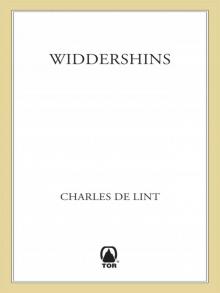 Widdershins
Widdershins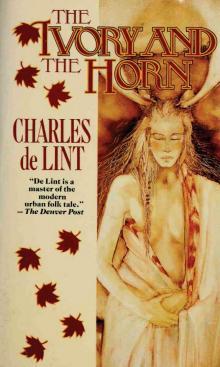 The Ivory and the Horn
The Ivory and the Horn Yarrow
Yarrow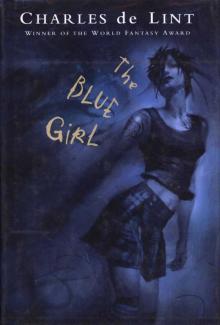 The Blue Girl
The Blue Girl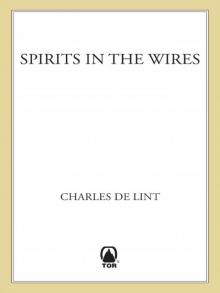 Spirits in the Wires
Spirits in the Wires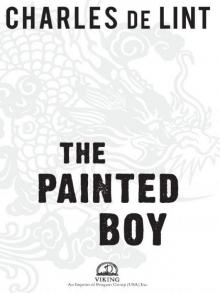 The Painted Boy
The Painted Boy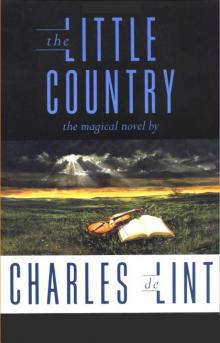 The Little Country
The Little Country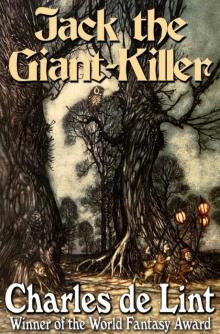 Jack of Kinrowan: Jack the Giant-Killer / Drink Down the Moon
Jack of Kinrowan: Jack the Giant-Killer / Drink Down the Moon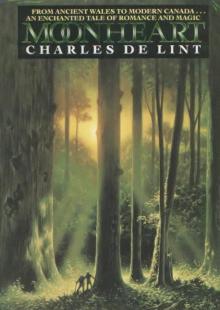 Moonheart
Moonheart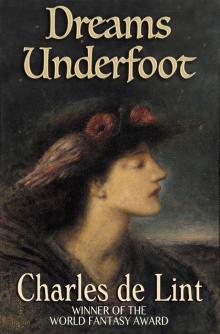 Dreams Underfoot
Dreams Underfoot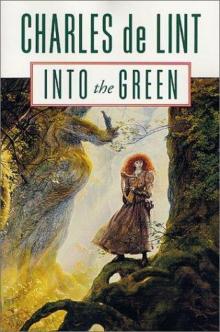 Into the Green
Into the Green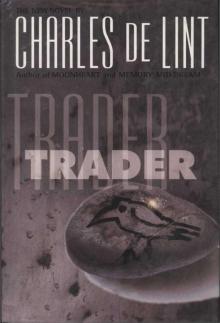 Trader
Trader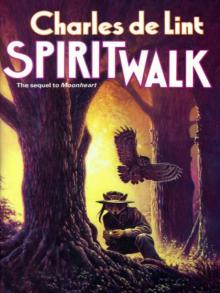 Spiritwalk
Spiritwalk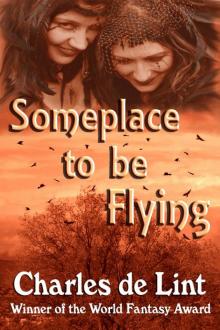 Someplace to Be Flying
Someplace to Be Flying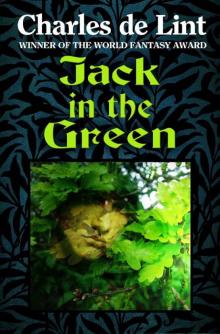 Jack in the Green
Jack in the Green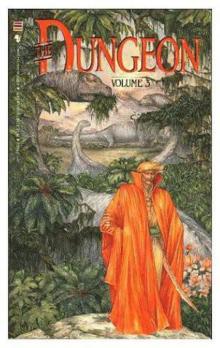 The Valley of Thunder
The Valley of Thunder Out of This World
Out of This World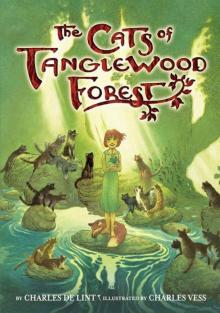 The Cats of Tanglewood Forest
The Cats of Tanglewood Forest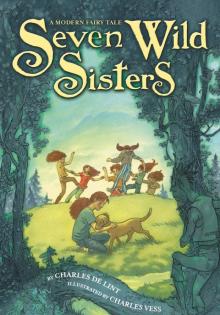 Seven Wild Sisters
Seven Wild Sisters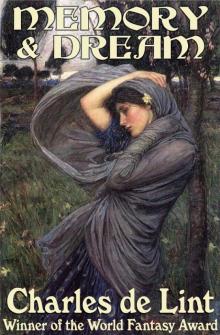 Memory and Dream
Memory and Dream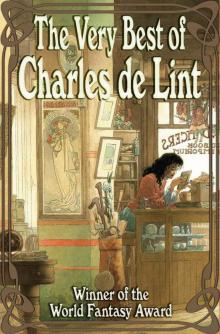 The Very Best of Charles De Lint
The Very Best of Charles De Lint Under My Skin
Under My Skin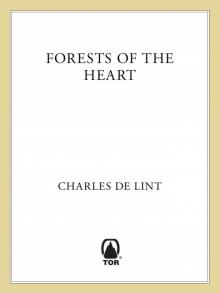 Forests of the Heart
Forests of the Heart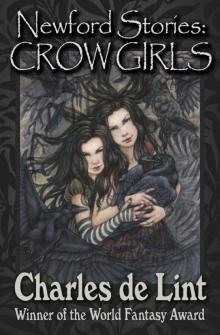 The Newford Stories
The Newford Stories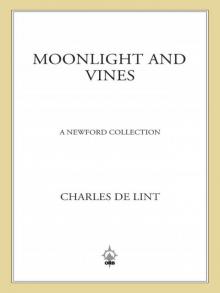 Moonlight and Vines
Moonlight and Vines Angel of Darkness
Angel of Darkness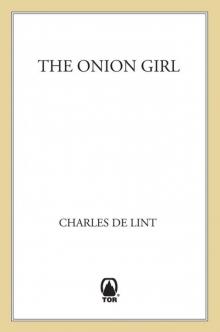 The Onion Girl
The Onion Girl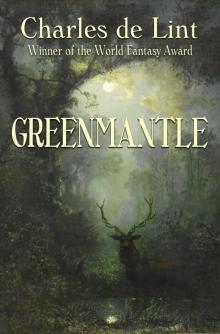 Greenmantle
Greenmantle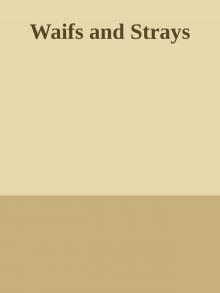 Waifs And Strays
Waifs And Strays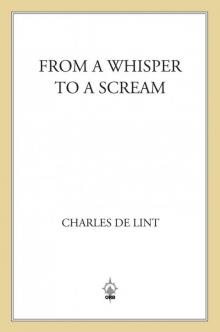 From a Whisper to a Scream
From a Whisper to a Scream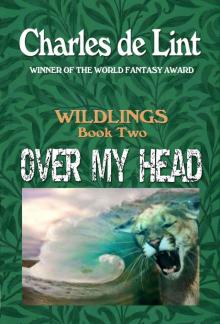 Over My Head
Over My Head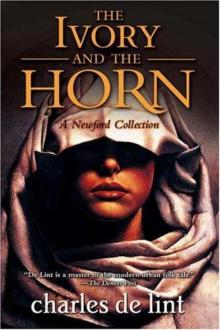 The Ivory and the Horn n-6
The Ivory and the Horn n-6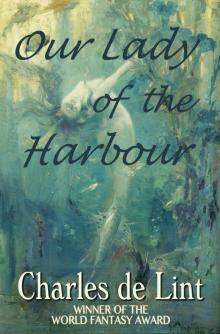 Our Lady of the Harbour
Our Lady of the Harbour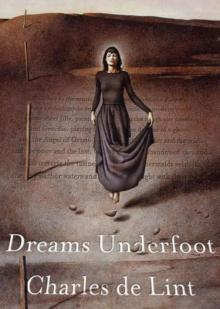 Dreams Underfoot n-1
Dreams Underfoot n-1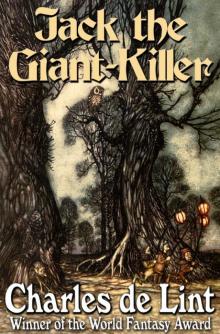 Jack the Giant-Killer (Jack of Kinrowan Book 1)
Jack the Giant-Killer (Jack of Kinrowan Book 1)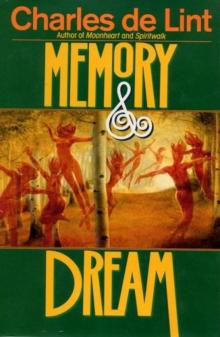 Memory and Dream n-5
Memory and Dream n-5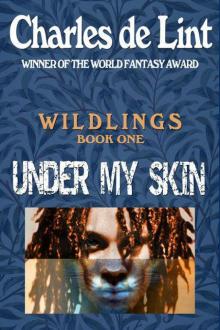 Under My Skin (Wildlings)
Under My Skin (Wildlings)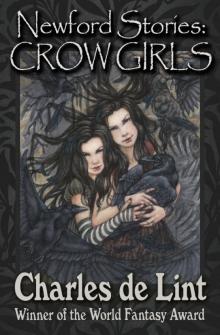 Newford Stories
Newford Stories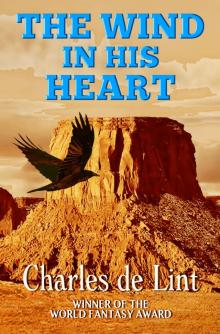 The Wind in His Heart
The Wind in His Heart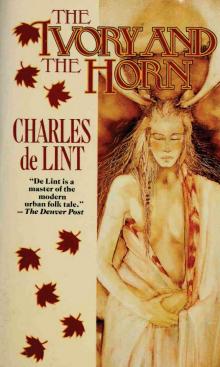 Ivory and the Horn
Ivory and the Horn